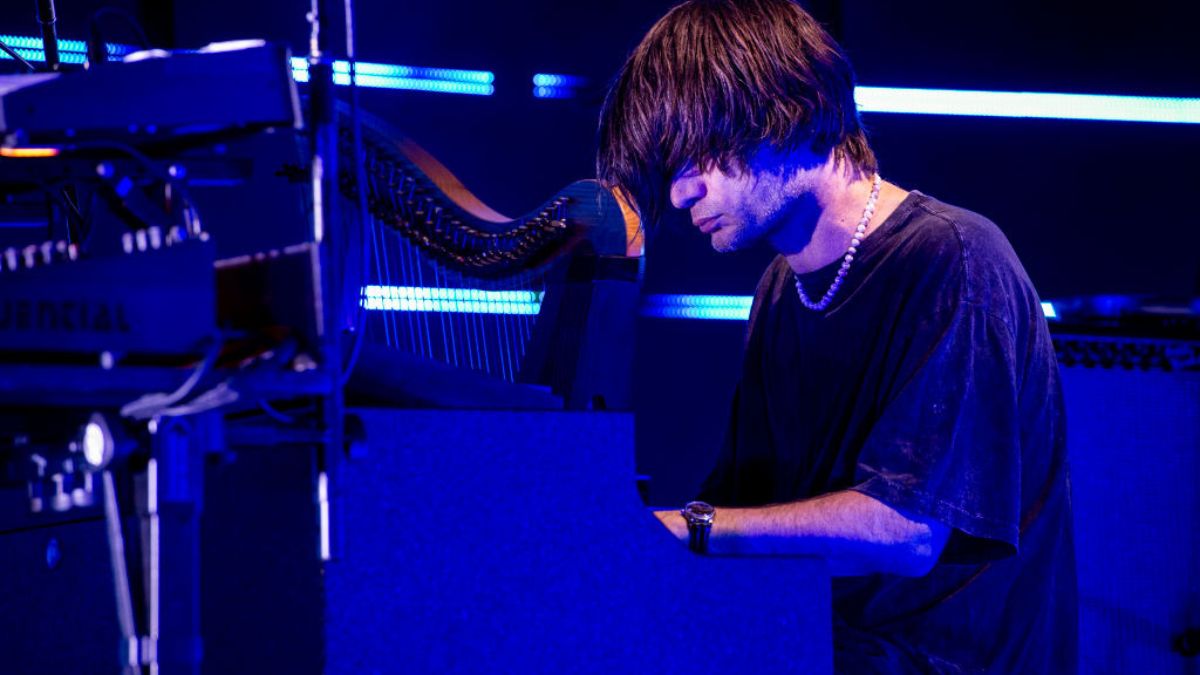
Erlingur Thoroddsen‘s Rift is an icy “cabin in the hills” thriller worth every scenic gawk; Iceland’s genuine production value featured to a remarkable degree (looming mountain regions to jagged lava fields). Landscapes like a Bob Ross painting and tension like a Justin Benson/Aaron Moorhead production might squeeze. It’s such prime location setting, which Thoroddsen skillfully uses to subtlety wall-in characters and inspire tone-snapping hope. This sets the stage for personal rumination in the most idyllic of lands, where evil may present itself as a wolf of our own conjuring – living, not even hiding, in plain sight.
Thoroddsen boils a complicated relationship between two men – Einar (Sigurður Þór Óskarsson) and Gunnar (Björn Stefánsson) – down to psychological fears. Uncertainty. Life. It’s their status as ex-lovers that unites the two men once again, after Einar leaves Gunnar a vague – and cryptic – voicemail. Gunnar, unable to decipher the message’s intent, leaps out of bed – leaving his new boyfriend behind – and before long, he’s right back where he once was. Trying to “save” Einar, but from what? Thus begs the question if it’s Einar who needs saving, or instead Gunnar, from demons who’ve followed him right to Rökkur (Einar’s family cabin).
To be fair, Iceland does not maketh the movie alone. Thoroddsen collaborates with cinematographer John Wakayama Carey in a way that tortures ghosts of relationships past while still remaining faithful to Icelandic whimsy. A country where the line between folktale and reality blur stronger than you’d think. Characters becoming lost in winds of reason. The sun shines, snowcapped peaks glisten, but a darkness still seeps in that’s never beholden to the physical representation of night. One might even argue how Thoroddsen’s most effectively chilling material plays out in plain sight, long gazes and undefined figures included. Hint: that “one” would be me.
Rift, itself, is a film of many themes, but it all stems from an embedded fear inherent in the very act of cultivating “healthy” relationships. Hoping your heart doesn’t get ripped out Mortal Kombat style, and when it does, dealing with the messiness left behind. Who’s the winner (Gunnar, quick to find new companionship), who’s the loser (Einar, left to get drunk and dwell on charred memories)? As the two begin to discover if their candles of passion will ever reignite, emotions range from unhealable pains to pure, passionate nakedness. You’ll wretch and hurt, be it a well-placed jump or Einar’s attempts to piece together something that no longer fits. Fear from the inside-out.
Mind you, Thoroddsen carves his warped sculpture through a vision many filmmakers shy away from. Sigurður Þór Óskarsson and Björn Stefánsson; two male characters who not only portray homosexuality through focal characters – with complexity – but equate romanticism to a universal feeling. Stefánsson specifically, who’s given a moonlit monologue that will rip out your very soul like Predator does Billy’s spine. It’s a clear definition of a gay male’s tragic first experience while not yet “out” – specific to experience – yet heaviness is layered in a way that’s affecting no matter how you identify (gay, straight, whatever). It’s something that shouldn’t be singled-out and lauded given accepting cultures, but here we are, talking about something filmmakers – mainstream especially – aren’t tackling on a regular-enough basis. Thoroddsen doing so with fixated importance, be it a penis Cheerio outline or a stripping of virginity recalled through chokes and tears.
This, of course, is an equal testament to acting. Einar and Gunnar flirt, argue and deconstruct themselves on camera, and it all starts with chemistry. Óskarsson so warm and adoring as he paws window glass like a hungry kitty, or Stefánsson labeling Óskarsson an alcoholic for the tenth time, because of an intense desire to save everyone. One failing if the other doesn’t react appropriately, which never happens as the nights and days pass. Sometimes through glances, other times while one sneaks a peak of the other changing. Love is a goddamn monster, and that’s the rift in question – two men who, despite their actions, couldn’t be farther apart from one another. Interpret as you will, but that’s my take. Exuberant existentialism pricked by a wilted rose’s thorn, highs and lows rockier than the terrain outside.
You’re right to assume that Rift isn’t your everyday “bros in a cabin” horror flick. We’re allowed to choose our own meaning and direction; thrown by visitors, hypnotic symbolism (water’s clarity) and fearful elements that’d rather break down a psyche than score cheap jolts. It’s not mother!-level dismantling – far from it – but Erlingur Thoroddsen tells a common story in the most uncommon regard. Reflective of our own inner demons whether we might realize it or not, begging questions and demanding answers without any guidance. Chilled, carefully concocted and unpredictable – apparently I like my movies like I like my cocktails. Can you blame me?










Published: Sep 22, 2017 06:28 pm